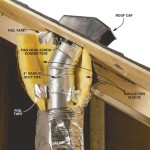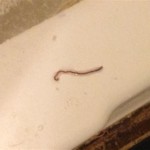Fixing a Leaky Bathroom Sink Faucet: Essential Aspects
Ensuring a well-functioning and watertight bathroom is essential for maintaining a comfortable and hygienic living space. A leaky bathroom sink faucet can not only be a nuisance but also lead to water damage and increased water bills. To effectively tackle this common plumbing issue, it is important to understand the essential aspects of fixing a leaky bathroom sink faucet.
1. Identifying the Source of the Leak
The first step in fixing a leaky faucet is to identify the source of the leak. It could be coming from the handle, the spout, or the base of the faucet. Determining the source will help you choose the appropriate replacement parts and repair techniques.
2. Gathering the Necessary Tools
Before starting the repair, gather the necessary tools, which may include a wrench, pliers, screwdriver, and replacement parts such as washers or gaskets. Having the right tools on hand will streamline the process and prevent any interruptions.
3. Shutting Off the Water Supply
Before attempting any repairs, it is crucial to turn off the water supply to the faucet. This can be done by locating the shutoff valves under the sink or in the basement. Shutting off the water will prevent further leaking and make the repair process safer.
4. Replacing Worn-Out Washers or Gaskets
Worn-out washers or gaskets are common culprits of faucet leaks. These components create a seal between different parts of the faucet, preventing water from escaping. If they become damaged or worn, they need to be replaced with new ones.
5. Tightening Loose Connections
Loose connections between the faucet parts can also cause leaks. Using the appropriate wrench or pliers, tighten any loose nuts or bolts that may have caused the leak. Avoid overtightening, as this can damage the components.
6. Using Plumber's Tape
Plumber's tape, also known as Teflon tape, can be applied to threaded connections to create a watertight seal. Wrap the tape clockwise around the threads before tightening the connection. This additional layer of protection will prevent leaks from occurring.
7. Testing the Faucet
Once the repair is complete, turn on the water supply and check for leaks. If the faucet is still leaking, repeat the troubleshooting steps until the leak is resolved. It is advisable to run the water for a few minutes to ensure no drips or leaks occur.

Properly Fixing A Leaky Sink Faucet Wallside Windows

How To Fix A Leaky Faucet True Value

How To Fix A Leaky Faucet The Home Depot

How To Fix A Leaky Faucet Guides For Every Design And Style

Tips For Avoiding A Leaking Faucet High 5 Plumbing

How To Fix A Leaky Bathroom Sink Faucet

5 Reasons Your Faucet Is Dripping Water How To Fix It

5 Reasons Your Faucet Is Dripping Water How To Fix It

How To Fix A Leaky Faucet Handle

Part 1 Of 2 How To Fix A Dripping Faucet







